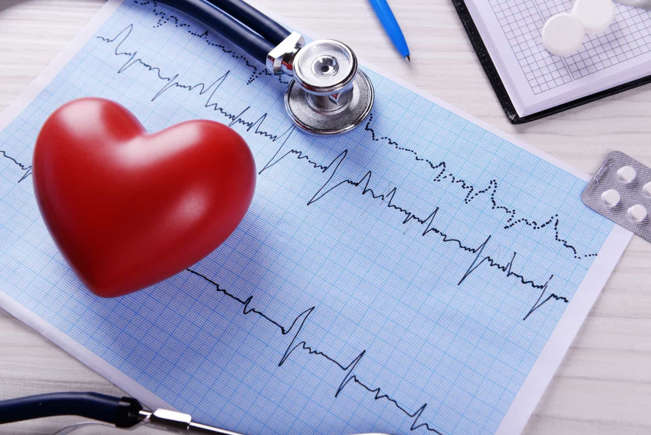Cholesterol is a fat-like substance found in every human body. It’s not inherently bad, but like anything in life, having too much of it can cause problems. High cholesterol increases the risk of stroke and many heart-related diseases.
High cholesterol is often caused by a diet high in saturated fat, obesity, and lack of exercise. Those who have diabetes are at a higher risk of having high cholesterol, and some people are just genetically predisposed.
Medication is sometimes used to treat high cholesterol, but lifestyle changes are the first line of defense. Luckily, there are many natural ways you can improve the balance of cholesterol in your body. Click through this gallery to learn more.
Cholesterol
Just like fat, cholesterol is an essential part of the human body and has many important functions. Also like fat, it becomes a problem when there’s too much of it, particularly in the wrong places.
Cholesterol and lipoproteins
Cholesterol is produced in the liver and is used in the production of several important hormones. Cholesterol moves around the body with the help of lipoproteins. There are two main kinds: low-density lipoprotein (LDL), and high-density lipoprotein (HDL).LDL cholesterol
High levels of LDL can cause health problems. They can leave cholesterol deposits in blood vessel walls, which leads to clogged arteries, strokes, heart attacks, and kidney failure.
HDL cholesterol
HDL, on the other hand, is a much better transportation method for cholesterol! It carries cholesterol away from blood vessel walls and reduces the risk of those diseases.
Double your defenses
When it comes to lowering your cholesterol, it’s important to do two things at the same time. You need to decrease your levels of LDL cholesterol, and increase your levels of HDL cholesterol. This two-pronged attack has the most health benefits. Click on to discover some of the best methods.
Monounsaturated fat
Many would assume that a low-fat diet is the best way to improve your cholesterol levels, but this isn’t strictly true. While saturated fats can be harmful, cutting out fat altogether has its downsides. The body still needs healthy fats and HDL cholesterol
Monounsaturated fat
Those who go on a low fat diet might reduce the levels of harmful LDL cholesterol in their blood, but they also reduced the levels of the helpful HDL cholesterol. The best option is to focus on monounsaturated fats as they decrease LDL and increase HDL.
Monounsaturated fat
Some of the best sources of monounsaturated fats include olive oil, canola oil, avocados, and tree nuts like walnuts, almonds, pecans, and cashews.
Polyunsaturated fats and omega 3
Polyunsaturated fats are another type of fat that reduce harmful LDL cholesterol and decrease the risk of heart disease. A study on more than 13,000 adults showed that swapping saturated fats for polyunsaturated fats in the diet reduced the risk of coronary artery disease by nearly 20%
Polyunsaturated fats and omega 3
Omega-3 fatty acids are one of the most heart-healthy forms of polyunsaturated fat. They’re found in seafood and fish oil supplements. The best natural sources of omega 3 are salmon, mackerel, herring, and tuna.
Avoid trans fats
Trans fats are a kind of unsaturated fat that has been altered through the process of hydrogenation. This renders the fat more stable and convenient for food products like vegetable oil, shortening, and margarine.
Avoid trans fats
Trans fats stay solid at room temperature, so food companies prefer to use them in products like pastries and cookies, as they provide a better texture than unsaturated fats. They may be convenient for manufacturers, but they cause problems in the body
Avoid trans fats
Trans fats reduce the levels of helpful HDL cholesterol and increase the levels of harmful LDL cholesterol. The findings of a global study suggest that trans fats may be responsible for as much as 8% of heart disease deaths around the world.
Soluble fiber
Soluble fiber is a compound found in plants that can’t be digested by the human body. However, it can be digested by the good bacteria that live in the gut! These good bacteria, or probiotics, need soluble fiber to thrive.
Soluble fiber
A healthy gut full of probiotics helps to lower the levels of harmful LDL cholesterol in the body. Some studies have shown that a high fiber diet is more effective in improving cholesterol levels than certain prescription medications.
Soluble fiber
Some of the best sources of soluble fiber include peas, beans, lentils, fruit, oats, and whole grains. You can also take a fiber supplement like psyllium.
Exercise
Exercise benefits heart health in countless ways. While fighting obesity and improving cardiovascular health, it also works magic on cholesterol levels. It both reduces harmful LDL cholesterol and increases the beneficial HDL cholesterol.
Exercise
Even low-intensity forms of exercise like walking can increase your HDL levels. But naturally, the more intense and frequent the exercise is the more benefits you’ll see.
Exercise
A wide range of studies suggest that 30 minutes of physical activity five days a week is enough to improve cholesterol and reduce the risk of heart disease.
Don’t smoke
Smoking is associated with an increased risk of heart disease for many reasons. One of those reasons is that it changes how the body deals with cholesterol
Don’t smoke
Tobacco tar damages immune cells in the body, so they retain cholesterol on the blood vessel walls. This can lead to clogged arteries and various other problems related to cholesterol.
Don’t smoke
Overall, studies suggest that smoking increases the harmful LDL cholesterol levels in the body and decreases HDL. Thankfully, the effects aren’t permanent. They can be reversed by quitting smoking.
Alcohol in moderation
This may surprise you, but drinking alcohol in small amounts can actually improve your cholesterol levels! The ethanol in alcohol can boost HDL in the body and reduce the risk of heart disease.
Alcohol in moderation
Alcohol also helps the process of removing cholesterol from the blood and vessel walls and transporting it back to the liver, which prevents clogged arteries.
Alcohol in moderation
The benefits of alcohol can be achieved by consuming one or two drinks per day. However, there are many other well-known negatives that come with the overconsumption of alcohol, so moderation is key.
Plant sterols and stanols
Plant sterols and stanols are basically plant-based versions of cholesterol. They are absorbed by the body in the same way, but because they are slightly different to normal cholesterol, they don’t clog the arteries.
Plant sterols and stanols
Sterols and stanols actually do the opposite. They lower cholesterol levels by competing with human cholesterol. They get absorbed by the body instead of the potentially harmful cholesterol
Plant sterols and stanols
Sterols and stanols are most commonly consumed through supplements, but small amounts can also be found in vegetable oil. Consuming vegetable oil has been shown to reduce LDL cholesterol by as much as 20%.
Supplements
Supplements are a great way to include the various cholesterol balancing compounds in your diet. Omega 3, soluble fiber, and plant cholesterol can all be conveniently consumed in supplement form.










